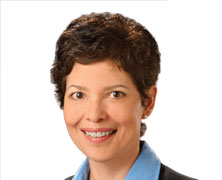Education is empowerment. I believe that girls and women want and should be able to exert as much control over their destinies as possible and the path to that is education. People think of education only as skills building and that it can lead to bigger jobs and earning more money, but it’s much more than that. Education gives you the tools to think, react to situations, put information together, and allows you to make the best possible decisions. The ability to question and discover is liberating; it helps us to find concrete freedoms and control that translate into a higher quality of life. My education started in the home—both my mother and father reminded me that education is important because it can’t be taken away from you. They said, “you can lose money, land, or other goods, but not your education”—and they were right.
The lack of education for women and girls in certain areas of the developing world is a serious concern. This lack, which can be attributed, in part, to economic and public health challenges, increases the risk of abuse and disease among girls. Access to education leads to healthier women who have healthier children with longer survival rates and girls who are more informed and able to fully participate in their communities. Many people aren’t aware of the large disparity in education of women across the world, and more importantly, how the gap ultimately can affect them.
In my position, I am keenly aware of the need of addressing critical public health issues, and the resulting return on those public health investments. CDC focuses on the eradication of diseases in other countries because it is the right thing to do and because of the significant impact on our country. Due to the rapid technological advances made, people throughout the world are more connected and countries are more interconnected. The world has become more of a global community with fewer boundaries. This is why the CDC is committed to training all people, including women, on public health issues. We want to empower others to detect, discover, and respond to the health challenges in their communities. I am privileged to be a part of an agency that seeks to educate people globally, including women, by providing availability and access to what we know, and inviting them to take us beyond that current knowledge.







